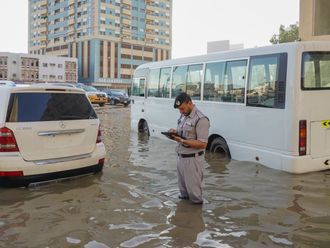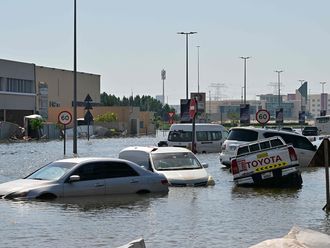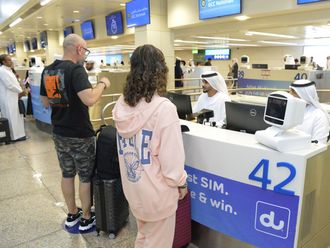Dubai: Wider use of seat belts could be the single best way to drastically bring down road fatalities in the UAE, a road safety expert said.
Thomas Edelmann, founder and managing director of RoadSafetyUAE, said that UAE roads could do with three wishes for 2017 — a holistic seat belt law, better time management and better road behaviour.
“The single biggest wish RoadSafetyUAE has is the introduction of the holistic seat belt law. Everyone in a vehicle must wear a proper seat belt at all times,” said Edelmann.
He added that in addition to the current law, which mandates seat belts only for the driver and co-driver, passengers in the back seat must also be protected by a holistic seat belt law.
“This is particularly important in order to protect our kids and it would dovetail nicely with the great UAE Children Protection Law, which was introduced in 2016,” said Edelmann.
He said that the authorities are working on the seat belt law and, besides its swift implementation, it must be enforced as strictly and holistically as possible, coupled with a very strong education and awareness focus of the concerned stakeholders in 2017.
“Road traffic accidents happen all over the world and the single most important device to avoid injuries and fatalities is the use of seat belts by everyone in the vehicle. We view this as the most low-hanging fruit to achieve the UAE government’s ambitious targets of the Vision 2021,” said Edelmann.
The UAE Vision 2021 aims at lowering road fatalities from six per 100,000 inhabitants currently to three per 100,000 by 2021.
According to Edelman, data collected from various sources and research projects over the last three years suggest two more behavioural changes that need to be addressed urgently.
He said that time management and road etiquette and politeness would dramatically improve UAE’s road safety and the human toll.
“Poor time management of the UAE’s motorists often leads to running late, and lost time is tried to be regained while driving. This leads to reckless driving, speeding, jumping queues and red lights, lane swerving, tailgating and bullying other traffic participants,” said Edelmann.
According to a RoadSafetyUAE survey, 67 per cent of UAE motorists claim ‘running late’ as being the root cause for their speeding.
“Hence, we have to call on motorists to start applying proper time management, for example, by starting every road trip 10 minutes early. This would reduce the stress levels and the safety for the motorist, but also the safety of our passengers and of surrounding fellow road traffic participants,” he added.
The lack of road etiquette and politeness is a main contributor to accidents and near misses. In a related study conducted by RoadSafetyUAE in 2016, 55 per cent of motorists stated that our roads have become more dangerous, 75 per cent observe more distracted driving, 66 per cent experience more lane swerving, 65 per cent more speeding and 69 per cent more tailgating.
“Road etiquette and politeness play a pivotal role. Motorists must treat others like they want to be treated, in the same respectful and polite manner. We have to care for each other and we must show this in our road behaviour. Even if we are running late or end up in other stressful situations, good manners and a caring attitude for others must prevail,” said Edelmann.












